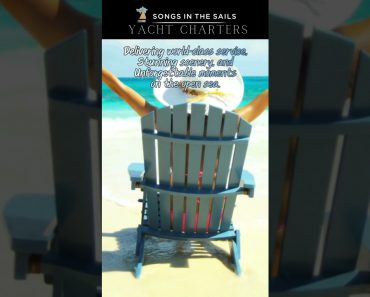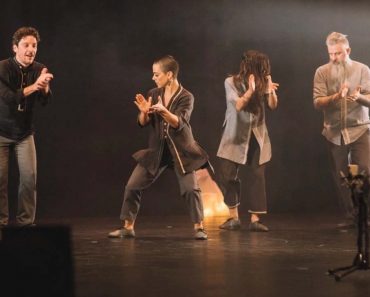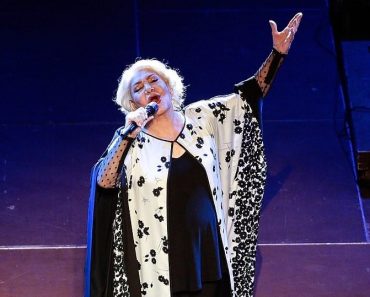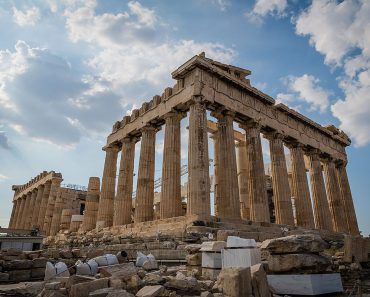Radio Tarifa – La noche (Buda, 2025)
Radio Tarifa, now the duo of multi-instrumentalists Faín Sánchez Dueñas and Vincent Molino, returns many years later with another gem, La noche, an album that honors the band’s late vocalist Benjamin Escoriza.
Yet again, Radio Tarifa presents a splendid cross-pollination effort with its mix of Castilian folk from the Spanish heartland, flamenco, medieval music, Breton melodies, Greek songs and Japanese material. No single voice could replace Escoriza, so the band opted for a constellation of singers. Each vocalist draws out diverse traditions and personalities. Although the Radio Tarifa musicians provided most of the instrumental sections, they also invited talented old and new friends who provide additional instrumental expertise.
The opener “La Noche” (the night) is an original song about love pursued through the night and city streets. It is the only song with vocals by the late Benjamín Escoriza.
On “Me Preguntas” (you ask me) the story is about doubt and reassurance in romance. The song uses an irresistible flamenco tango beat. It is followed by “Tarantos,” with reflections on ancestry and hardship around the mines through a flamenco lens. The heartfelt vocals on these two songs are by flamenco singer Javier Castrillón.
“Picaba En Vano” (pecked in vain) is a traditional Spanish folk song that contains verses of devotion and farewell that kiss thresholds and honor everyday spaces. The groundbreaking Spanish folk singer Eliseo Parra provides vocals here. Faín S. Dueñas provides percussion support and superb guitar work.
Fain’s original “Luz” (light) is about consolation and courage; two souls walking hand in hand under a promise of guiding light. Here, Fain plays all instrumental and provides vocals as well.
“La Niña Del Almendro Viejo” (The Girl of the Old Almond Tree) is based on a traditional melody from Brittany. The narrative here is about a girl, a black cat, and an old almond tree embodying loss, memory, and quiet melancholy. Spanish singer Blanca Paloma contributes lead and backing vocals, transforming this Breton song into an alluring chamber folk piece.
Radio Tarifa crosses the Mediterranean, heading east all the way to Greece on “Ay Ojos Negros” (Oh Black Eyes). The band transforms this traditional Greek song by injecting Spanish vocals and delicate guitar and cello. It features folk imagery of the partridge and rosebush framing flirtation and traditional courtship. “Sabah,” another Greek tune, depicts a neighborhood scene of teasing, drinking, and laughter; smoke and ouzo as playful escape. Guest vocalist on these two tracks is Jose González. Here, Radio Tarifa adds Spanish and North African influences.
With “Soleá Del Desamor” (Soleá of Heartbreak), Radio Tarifa travels back to Spain with a soleá, another flamenco subgenre. This time, it is a story about heartbreak and self-blame; the heart locked “with two keys.” Javier Castrillón returns to infuse the vocals with flamenco essence.
Radio Tarifa take another unexpected turn on the charming “Quel Sol Che Raggia” (That Sun That Shines). It is based on a medieval composition by Italy’s Francesco Landini (1325-1397). The lyrics, beautifully sung by Blanca Paloma, explore courtly love and longing.
The flamenco-rooted “Samai Sintigo” features Juan Miguel Cabral on vocals. The song portrays dreams of a distant beloved and the sleepless ache that follows confession.
“Sakura” transports Radio Tarifa to Japan. Faín Sánchez Dueñas takes this traditional Japanese song and elegantly intertwines Spanish guitar, Japanese koto and American banjo along with mesmerizing vocals by Mizuki Wildenhahn:. It is an evocation of cherry blossoms, passing seasons, and the beauty of impermanence.
Vincent Molino’s original “Songe Obscur” (Dark Dream) features Vincent’s superb ney melodies. It offers wind, prayer, and sorrow transformed into silence and poetic detachment, with Vincent Molino on French vocals.
The final track is “Digifonía,” a brief, minimalist electronic epilogue.
Musicians: Benjamín Escoriza on vocals; Faín S. Dueñas on electric guitar, Casio VL-Tone, bass, percussion, guitars, organ, reverse guitar, guimbri, banjo, bouzouki, koto; Vincent Molino on keyboards, oboe, argul, ney, flute, gaita (bagpipe), bawu, crumhorn, piano, vocals, bass; Aziz Zahriou on violin; Javier Castrillón on vocals; Eliseo Parra on vocals; Blanca Paloma on vocals, choruses; Hames Bitar on ud; Jouad Ibiks on violin, viola; Wafir Sheik on violin, accordion; Jose Juan Martinez on bass; Jose González on vocals; Chris White on cello; Juan Miguel Cabral on vocals, guitars, bass, guimbri; Merche Trujillo on gaita; Ramiro Amusategui on ud; Aida Brandes-Hargrove on piano, percussion, cello; and Mizuki Wildenhahn on vocals.
Buy La noche.
Author: Angel Romero
Angel Romero y Ruiz has dedicated his life to musical exploration. His efforts included the creation of two online portals, worldmusiccentral.org and musicasdelmundo.com. In addition, Angel is the co-founder of the Transglobal World Music Chart, a panel of world music DJs and writers that celebrates global sounds. Furthermore, he delved into the record business, producing world music studio albums and compilations. His works have appeared on Alula Records, Ellipsis Arts, Indígena Records and Music of the World.








